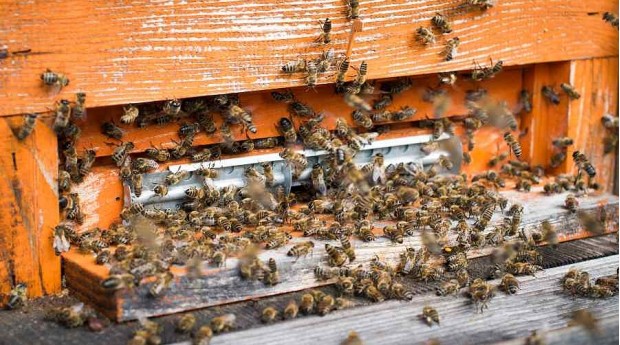- KEYBOARD NAVIGATION
- DISABLE ANIMATIONS
- HIGH CONTRAST
- BLACK & WHITE CONTRAST
- INCREASE TEXT SIZE
- DECREASE TEXT SIZE
- MARK TITLES
- MARK LINKS
- UNDERLINE LINKS
A major new recognition for Slovenian beekeeping
With its rich tradition of beekeeping and dedicated beekeepers, Slovenia received a major new recognition yesterday.
Slovenians have long been proud of the country's wealth of beekeeping heritage, among which undoubtedly are the Carniolan grey bee, traditional apiaries, painted frontal panels and transporting bees to pasture. Knowledge and techniques in the area of beekeeping, which have been carefully handed on from generation to generation are based on a tradition dating back centuries, mean Slovenian beekeepers have become role models for other countries. Today, our beekeepers are known throughout the world as well organised and talented professionals in their field, who conduct beekeeping in a bee-friendly and sustainable manner.
Following the declaration of World Bee Day by the United Nations just under five years ago, yesterday Slovenia, with its rich tradition of beekeeping and dedicated beekeepers, received a major great recognition. At a meeting in Morocco yesterday, UNESCO's Intergovernmental Committee for the Safeguarding of the Intangible Cultural Heritage entered the nomination 'Beekeeping in Slovenia, a way of life', which Slovenia submitted in March 2021, onto the UNESCO Representative List of the Intangible Cultural Heritage of Humanity. Under the leadership of the Ministry of Culture, the Apiculture Museum in Radovljica was among those involved in preparation of the nomination.
Related news
With its modern exhibition, the Museum of Apiculture reveals the exceptional world of the Carniolan grey bee and Slovenian beekeeping. The exhibition brings together the legacy of world-famous beekeepers and reminds us of the importance of preserving bees and a healthy environment for them.
The heart and soul of Radovljica is Linhart Square which inspires with the variety and authenticity of its preserved architecture.
The architectural style of the manor in Radovljica old town is 18th century in character, whilst its interior is home to museums, music and events.




